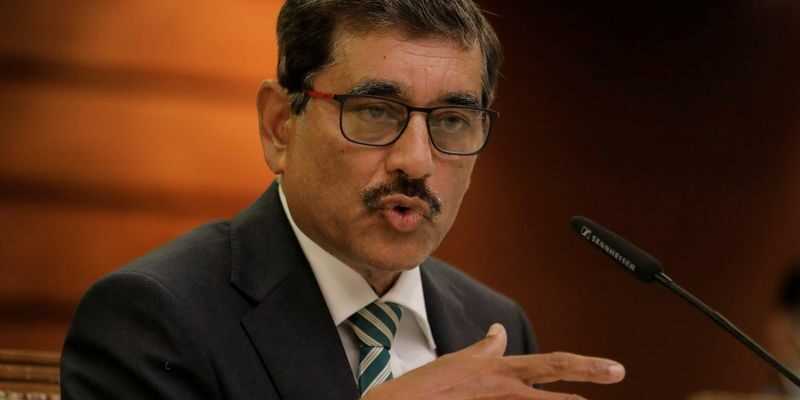The heavily indebted country has little money to pay for imports, which has led to crippling shortages of fuel, electricity, food and, increasingly, medicine. Street protests have continued almost uninterrupted for more than a month, despite a five-day state of emergency and a two-day curfew.
President Gotabaya Rajapaksa leads his administration with only a handful of ministers after his entire cabinet resigned this week, while the opposition and even some coalition partners have rejected calls for a unity government to deal with the country’s worst crisis in decades.
At least 41 lawmakers have left the ruling coalition to become independent, although the government says it still has a majority in parliament.
“The government must tackle the financial crisis and strive to improve governance, or we will table a motion of no confidence in the government,” Sajith Premadasa, leader of Samagi Jana Balawegaya, told parliament.
“It is imperative that Sri Lanka avoids a disorderly debt default. The government must endeavor to suspend the debt and appoint financial advisers to start the process of debt restructuring.”
Parliamentary work was suspended twice in the morning after parliamentarians had a row, two members having been temporarily expelled from the chamber on the orders of the president.
Nearly two dozen associations, representing industries that collectively employ a fifth of the country’s 22 million people, have together urged the government to quickly seek financial assistance from the International Monetary Fund (IMF), the World Bank and the Asian Development Bank (ADB).
“We need a solution in the coming weeks or the country will fall off the precipice,” Rohan Masakorala, chief executive of the Sri Lanka Association of Manufacturers And Exporters of Rubber Products, told a press conference.
“According to our estimates, exports of goods and services could fall by 20 to 30% this year due to the shortage of dollars, rising transport costs and power cuts.”
RESERVES DIVE
Mr Rajapaksa is scrambling to find a new finance minister to lead talks this month with the IMF for emergency loans, after Ali Sabry tendered his resignation on Tuesday, after just a mandate day. It was unclear whether the president had accepted Sabry’s resignation.
“We are pushing the government and the opposition to establish political stability as soon as possible and give us a way forward,” Masakorala said. The IMF should have intervened yesterday.
Sri Lanka’s foreign exchange reserves have fallen by some 70% over the past two years, reaching $1.93 billion at the end of March. He has a billion dollar debt due in July, and more later this year.
Inflation, meanwhile, has soared to its highest level in more than a decade, and on Friday evening the Central Bank of Sri Lanka is expected to raise its key interest rates by 400 basis points (bps). after a 100 bp rise in early March.
The government has secured multi-billion dollar lines of credit and currency swaps from India and China, but industry leaders say it needs to do more, urging the central bank governor to begin urgent negotiations.
“The Indian lines of credit will only last until the end of April,” said Russell Juriansz, chairman of the Sri Lanka Shippers’ Council.
“We call on the president to make the right decision or it will haunt him for the rest of his life.”
Besides importing essential drugs through a $1 billion line of credit with India, the Sri Lankan authorities are also in discussions with the World Health Organization, the World Bank and the AfDB for the supply of drugs, government health official Saman Rathnayake told Reuters. (Writing: Krishna N. Das; editing by Muralikumar Anantharaman and Raju Gopalakrishnan)
